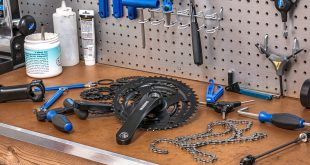BikeBiz.com got it wrong. The October 1992 New Cyclist article was not the first to reveal the Bic opening method.
Chris Juden, the technical officer for CTC, Britain’s largest cycling organisation, points out that he revealed the method in the August 1992 issue of Cycle Touring & Campaigning, the CTC members’ magazine. His source was Brian Wade, a consumer rights champion, who sent warnings of his lock opening methods to lock suppliers in early 1992. Wade was also the lock breaking expert featured in John Stuart Clark’s New Cyclist article.
"Just for the record, CTC was first with the full story," said Juden.
"I published the article ‘Lock it and lose it’ in which I reported the ease with which the pen-wielding Brian Wade could defeat any tube-keyed lock."
Juden is one of Britain’s most respected cycle product testers, and before becoming a writer for CTC in the 1980s, he was an engineer with Raleigh.
"Ive always had reservations about tubular locks," Juden told BikeBiz.com.
"Following their introduction I got a steady trickle of reported problems with people who came back to their bikes to find the exposed pins chewed up by some implement or other so their own key wouldnt work. CTC has always recommended better-quality European locks – such as Squire, Abus, Trelock that use some other kind of key where the pins or discs are concealed."
Nigel Moore of Moore Large – one of the top five cycle distributors in Britain, importer of the Israeli OnGuard locks – is critical of those companies which continued to use tubular cylinder mechanisms.
"The ability to open cylinder locks has been well known for years and yet [many lock companies] made no effort to change and charged very high prices. It does our industry no good if the public are being ripped off."
Yaniv Shabtay, MD of Magnum Lock Ltd., makers of OnGuard locks, said:
"Cylinder key locks are very problematic and compromise security. OnGuard discovered this years ago. OnGuard locks use flat keys, which we have been using for many years.
"Riders want the best for their investments, and they expect nothing less from the bike shops in whom they place their faith and their hard-earned money."
Gordon Fisher, MD of Fisher Outdoor Leisure, another of Britain’s top five bike product distributors, said:
"When this story first broke in 1992, prices of these sort of locks, supposedly premium locks, fell overnight. Expensive locks became cheap locks. You could hardly give them away. This was not a problem kept hidden from view."
Whilst the Bic flick is now in its second week of causing chatroom consternation in the US and, to a lesser extent, the UK, there’s little or no cylinder-key chatter in big bicycle buying countries such as Germany.
The Kryptonite distributor in Germany, unlike his counterparts in the US and UK, is not reporting retailer’s shelves being cleared of Kryptonite locks.
 BikeBiz Bicycle and cycling retail news
BikeBiz Bicycle and cycling retail news



